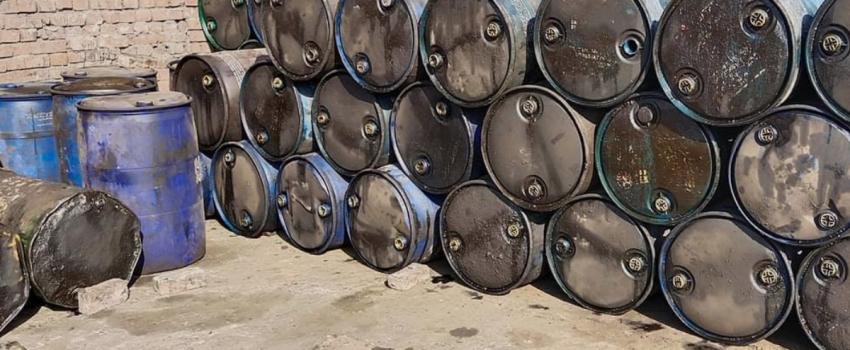
Improperly Managed Used Engine Oil in Pakistan
Used engine oil, often referred to as black oil, poses significant environmental and health hazards when not managed properly. In Pakistan, the improper disposal and reuse of used engine oil have become common practices, leading to adverse effects on both the environment and human health. This article explores the various concerns associated with the inappropriate handling of used engine oil in Pakistan.
A concerning trend in Pakistan involves certain individuals and workshops engaging in the practice of refilling cars with used engine oil. This not only jeopardizes the performance of the vehicles but also gives rise to significant safety concerns. The use of substandard oil in damaged engines can result in heightened wear and tear, leading to escalated repair costs, and, in extreme cases, catastrophic failures. Adding to the gravity of the situation is the illegal refilling of used engine oil into branded cans, further compromising the integrity of legitimate products and putting unsuspecting consumers at risk.
One of the major issues surrounding used engine oil in Pakistan is its improper recycling. While recycling is a commendable effort to reduce waste, the methods employed in some facilities may not meet proper standards. Inadequate recycling processes can result in contaminated oil, which, when reused, can harm car engines and compromise their performance.
Used engine oil is often burned in small industries for various purposes, including heating and energy production. However, the combustion of used engine oil releases harmful pollutants into the air, contributing to air pollution. The emissions from burning used oil contain toxic substances such as heavy metals, polycyclic aromatic hydrocarbons (PAHs), and volatile organic compounds (VOCs), posing serious health risks to both workers and nearby communities.
Another concerning practice in Pakistan involves the use of used engine oil for rubber softening. This application is not up to standard and can result in the production of substandard rubber products. The chemicals present in used engine oil may compromise the quality and durability of the rubber, leading to safety concerns in various industries that rely on rubber materials.
The improper handling and disposal of used engine oil have direct implications for human health. Exposure to the toxic components present in used oil, whether through inhalation of fumes or skin contact, can lead to respiratory problems, skin disorders, and other health issues. Workers in industries using or recycling used oil are particularly at risk, facing long-term health consequences due to prolonged exposure.
The indiscriminate disposal and inadequate recycling of used engine oil contribute to environmental degradation. Soil and water contamination occur when used oil is improperly discarded, leading to adverse effects on ecosystems and potentially affecting the food chain. Additionally, the release of pollutants during the burning of used oil further exacerbates air pollution, impacting both the environment and public health.
Apart from the mentioned concerns, it is essential to highlight that numerous other uses of black oil exist in Pakistan, which currently lack proper regulation by the government. These unregulated applications may include the use of used engine oil in various makeshift heating systems, informal small-scale industries, and even in certain traditional practices. The lack of oversight and control in these areas raises additional alarm about the potential health and environmental hazards associated with such unmonitored uses. Urgent attention and comprehensive regulations are required to address these unregulated black oil applications, ensuring that they adhere to established standards and do not compromise the well-being of the population or the environment. A proactive and vigilant approach by regulatory bodies is crucial to identify and manage these unregulated practices effectively.
Addressing the challenges associated with used engine oil in Pakistan requires a multi-faceted approach. Strict regulations and enforcement of proper disposal and recycling practices are essential to mitigate the environmental and health risks. Public awareness campaigns can also play a crucial role in educating individuals, industries, and communities about the proper handling and disposal of used engine oil to safeguard both human health and the environment. It is imperative that stakeholders work collaboratively to establish and adhere to responsible practices, ensuring a sustainable and safe future for Pakistan.
For authentic products and authorized retailers, kindly visit our nearest oil change shops.
Comments
Leave a comment
Your name and email address will not be stored in the browser and your email will not be published.